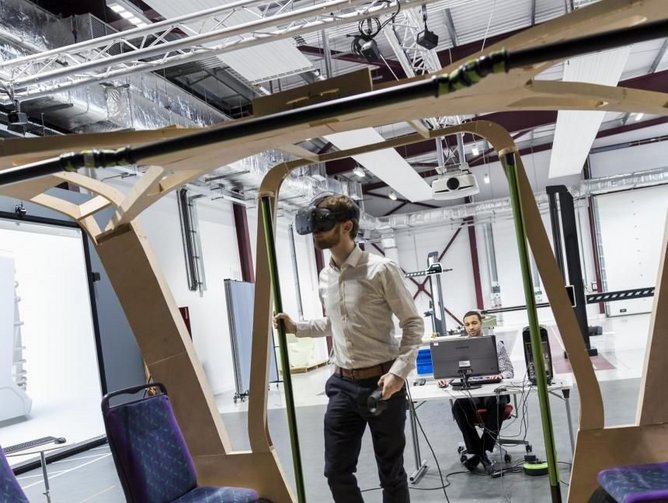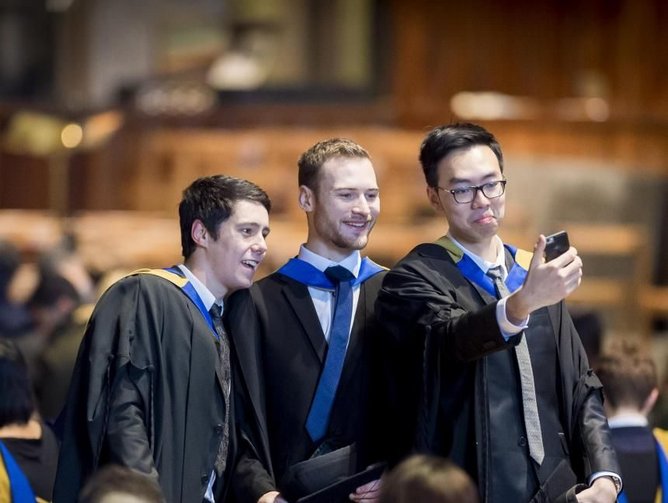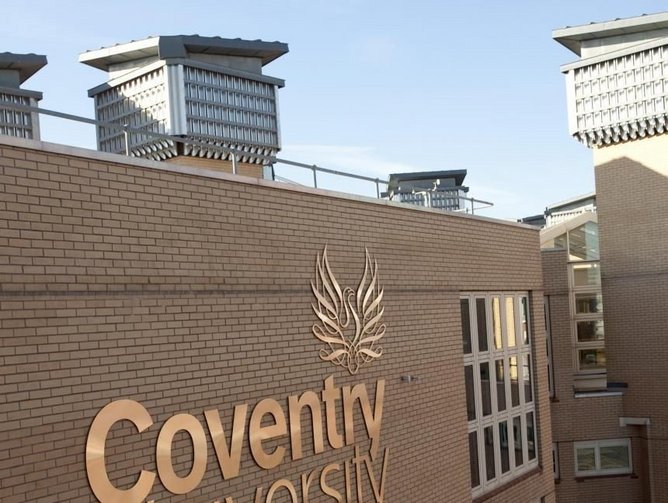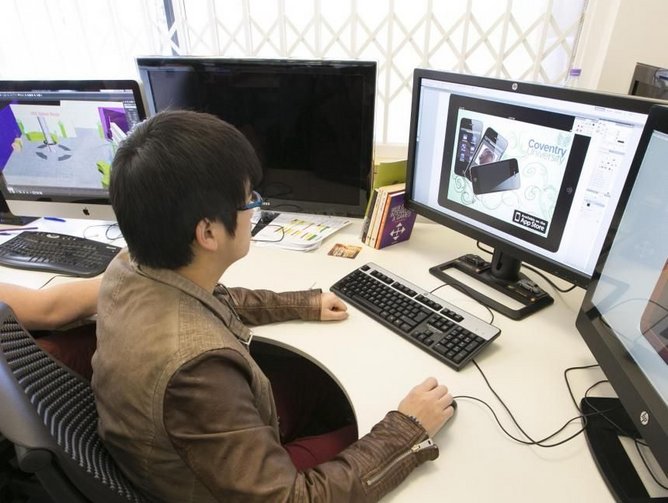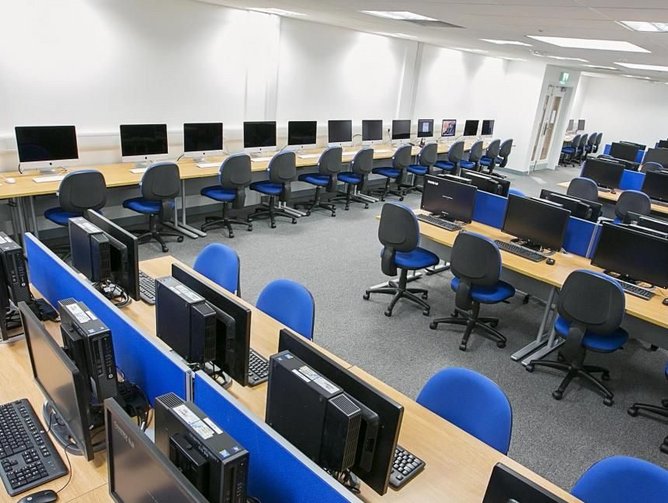Interview: Inside Coventry University’s digital transformation
From 11 years of military service to leading the rebuild of Iraq’s post-war banking network to serving oil and gas and mining industries across Africa, Simon Launder may not have foreseen a decade ago that he would be spearheading a digital transformation at Coventry University.
Enjoying a hugely diverse career to date, Launder is living proof that technology crosses industry boundaries like no other specialist field, and when the opportunity to move into higher education presented itself in 2016, he had a big decision to make.
“The aspirations of Coventry University and the desire for innovation and excellence in everything it does to launch it up the league tables really sold it to me,” the Deputy Chief Digital Information Officer recalls. “Coventry showed me it was going places and that they are not afraid to take risks – we talk about the “Coventry Way”, which to me is all about the agile and dynamic environment in which we operate. We seek opportunities across all operating environments and, in some instances, act like a start-up by pushing boundaries to positively disrupt ourselves as well as our industry.”
Launder was proved correct. The first to state that the highly skilled and dedicated IT team – who go above and beyond to cater for staff and student needs – is the University’s greatest asset, Launder points to a vision and culture that stems from the top.
Steve Humber, a former Olympic and World Short Track Speed Skater, joined Coventry as the Chief Digital Information Officer from Rolls Royce last year to drive high performance and its digital transformation, the addition of digital to the traditional CIO title a deliberate move to push the digital agenda at the organisation. The move worked, and IT now enjoys a position at the Coventry University Group’s top table when it comes to strategic decision making.
Students, staff and the drive to transform
Fast-forward to the present day, and the university has once again retained its title of top modern university from The Guardian in its University Guide 2019 for the 7th year in a row as well as many other accolades, including being ranked 13th in the UK in the same guide, and top 100 in Europe for teaching and top three for student engagement from The Times Higher Education.
Underpinned by an IT department whose teams know their functions inside out, these accolades are in no small part the result of an ongoing innovation and transformation drive that has the student and staff member at its core.
“It is about creating better futures,” Launder says. “and that’s not just for our own IT staff – it’s for our students, staff and anyone that comes into contact with us. Digital touches our everyday lives more than ever, and our work must ensure that our students especially are provided with the technology and services that enhance their learning and experience. We are helping shape their futures of which they are our future.”
Younger generations of students passing through higher education institutions expect a technological experience to match that witnessed in other aspects of their lives. However, enhancing student experience and engagement is one of many factors behind Coventry University Group’s IT transformation.
“As an organisation, we need to maintain pace and agility” Launder states. “IT is supporting a dynamic environment that stretches far beyond the Coventry city boundary. We have a campus in Scarborough, two in London and a global presence with operations and opportunities for students to study for a Coventry University degree outside of the UK with one of our partners across 32 countries or through our online learning business.
“We are a global organisation and we have to adapt to that. We must be flexible in our approach, but we've also got to be operationally sound and secure in our delivery as we support over 50,000 students’ who require access to data, products and services at any time from any location.”
Vision 2021
In order to serve students and staff and support the business in its strategic development, Launder, Humber and the group CTO Stephen Booth identified the need for IT services to transform from a cost centre to a value added digital organisation.
It has identified 10 departmental priorities, which beyond the current transformation efforts include the development of a high-performance culture, enhancing security operations and provision of safe and secure cloud-based infrastructure.
Central to the transformation is a digital platform concept being developed and led by Launder, a transition that aims for IT services to become vision, value, user and outcome focussed in all that it does, working in the business as opposed to for it.
The IT executive at Coventry believe that the key to achieving these business objectives is to organise business teams around solving a problem or pursuing an opportunity.
Launder goes into detail to point out that: “This requires the unique ability to find where value is likely to be disrupted within the business, or the markets in which we operate. The risk we face is through getting caught up in our existing and legacy challenges that we miss the opportunity to re-imagine customer experiences and identify that disruptive way that takes us a step further to enhancing the student journey and experience or provide lifelong learning opportunities for all.”
To enable this, Launder, Humber and Booth are pushing to devolve governance to a level aligned with the differentiating business objectives that connect the product portfolio to the strategy of the University Group, and by how the University consumes its services and products. This devolved governance will be achieved by the establishment of a number of Digital Platforms consisting of product lines and the digital products that are used across the organisation.
“We must ensure that the Digital Platforms achieve devolved governance to enable agility and a state of continuous develop and improvement. The Platform controls the priority, people, processes, data and technologies that support the business objective,” says Launder.
“The devolved Governance of a Digital Platform at both business and IT Service levels ensures maximum focus is applied to strategic aims and operational efficiency, whilst increasing the agility of development and the deployment of change. These Platforms provide the group with the differentiators to move from the current state to a more desirable, future state. They help drive innovation and competitive differentiation achievable only through effective product portfolio solutions.”
This new approach is designed to deliver a dynamic standardised product and process-based portfolio that identifies problems and presents solutions.
Reaching out
Although the IT Services team is staffed with experienced IT professionals, Launder sees the importance in bridging the gap between the expertise behind the scenes and their end user beneficiaries.
“We see value in having students come and work with us when they've finished their undergraduate degrees,” Launder says. “It is invaluable across all our disciplines and delivery”.
“We've recently created a digital productivity team that crosses user groups between our staff, academics and our students to understand current digital literacy levels, we are then taking that knowledge to promote, train and educate at the right level on how to get the most from our supported products and services. The best way to do that with our student body, we're finding, is actually working with students who present back to fellow students so that the message is pitched in the right language and tone.”
Office 365 and Windows 10 have been two of the latest successful deployments across all staff and student facing desktop and laptop devices - of which there are over 12,000, and Launder also points towards the importance of close collaboration and dialogue with staff and students before making major decisions on technology investment.
“We work closely with academics and our researchers to understand what they are working on today and what they need to deliver excellence in their teaching or research, whether it's HPC on-demand or our own on campus systems and services. We're also actively and aggressively exploring other emerging technology areas to see how they can be applied to benefit individual users, groups or the entire organisation such as blockchain, deep learning, augmented reality, Artificial Intelligence and machine learning.
“It's ensuring that we're not just going out and sourcing the technology or investing heavily in its development, but that we really are finding user cases for it before looking at how we can apply it. It goes back to understanding more about the user, the vision and business outcomes before looking at the technology”
Partner prowess
Indeed, when it comes to the application of technological solutions, external expertise and partnership has been invaluable to the Coventry University Group to date.
“We're a higher education institute, and we're an IT department that is going through some dramatic change to meet this digital world that we operate in, but we can't do it without the partners that we engage with and have trust in - and we make a big distinction between suppliers and partners of which each bring their own value” says Launder.
“I see little point in us trying to reinvent things that have been done in other digitally advanced and savvy industries such as seen in finance and retail – we can learn from the technology that these industries are developing with our partners to see where it can fit our own user cases to benefit our end users, whilst using our own knowledge and expertise to enhance what we do best.”
One influential consulting partner which has been on board at several junctures of the organisation’s transformation journey to date is Mozaic. By presenting initial design ideas and guiding the IT executive team through the early stages of transformation design and development, Mozaic has helped Coventry University establish a vision to leave that all important first base.
Launder adds: “Mozaic have provided us with in-depth knowledge and proven experience across the full lifecycle of IT, and by being external to our environment has allowed us to see the great work we are doing as a department today from another perspective and the best way to advance our capability to achieve our digital vision
“And likewise, with the technology choice we are working with some great partners such as Amazon Web Services, BT, Cisco, Atos, Aula and Maxica who are willing and eager to co-create and co-innovate with us as we jointly look for new innovative and digital ways of engaging with our students and further developing our digital campus and journey.”
On the map
The progress made to date by Coventry University thus far has helped it become something of an ed-tech hub, building on the fact the organisation already has a physical presence well beyond the West Midlands.
This is not to ignore exciting developments currently taking place at its Coventry home. The university is continuing its major investment in the form of a £500mn ($600mn) campus development and refurbishment programme which will significantly increase student accommodation, research facilities, teaching, social and public space, IT suites and engineering labs. IT services has had a key role to play in ensuring it meets the requirements of the modern-day digital user, be they staff, students, researchers or the general public.
Such desire to invest in state-of-the-art facilities will help draw attention to the organisation.
“We want to be at the centre of the edutech ecosystem,” says Launder. “We are approached by all sizes of tech companies from start-ups to global names, and that’s due to being on such a trajectory and journey of global growth. We’re willing to work with these companies and see where their products and services can take us - where we can do things better and where we can go further.”
Even global heavyweights like Uber are showing interest. In June, the American ride-hailing giant recognised Coventry University as a collaborative partner on its flying taxis development, something which could take off as early as 2020.
“The progress we have made as a University is phenomenal. Teaching excellence and student experience are our core, and what we can do from a technical perspective to retain that excellence and better that experience for prospective students through to Alumni is always our priority – we have come a long way, and we’ve got a long way to go but we have the right people, plan and passion to get there” Launder concludes.

